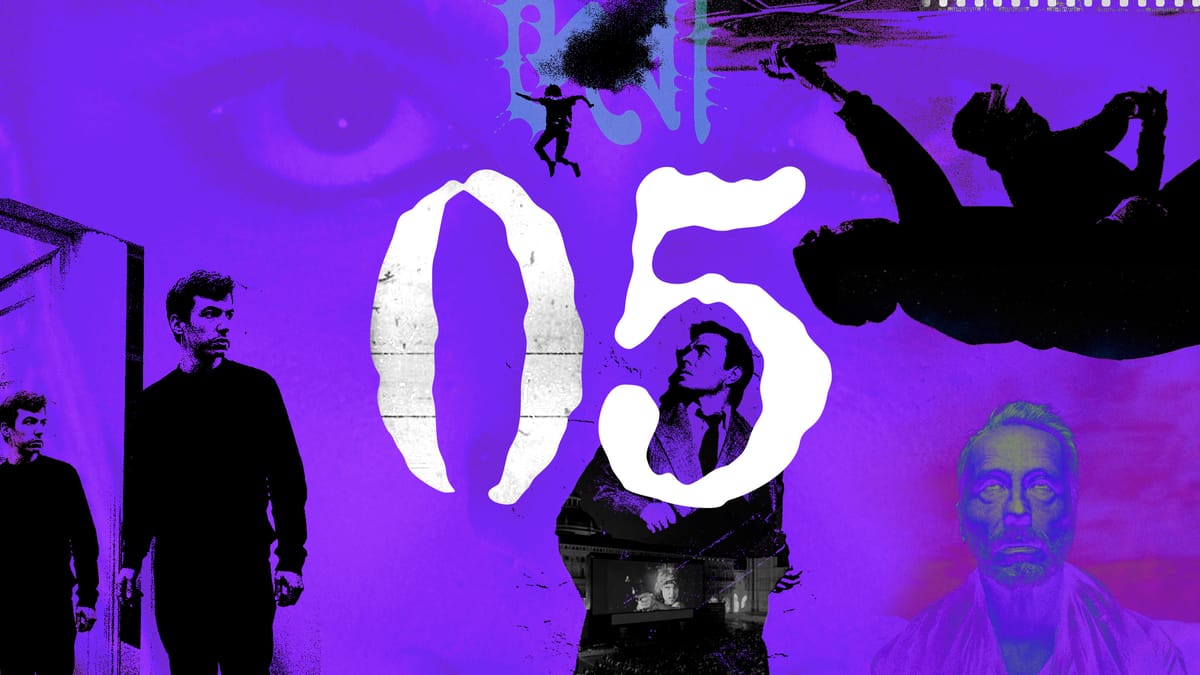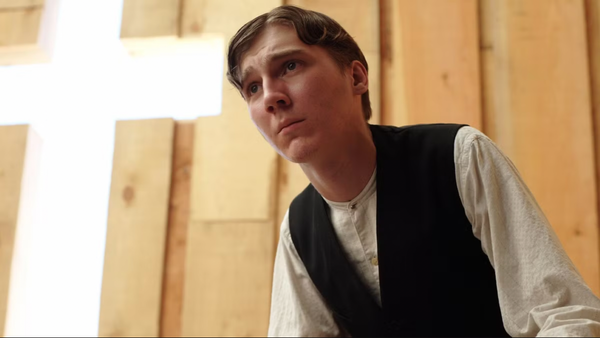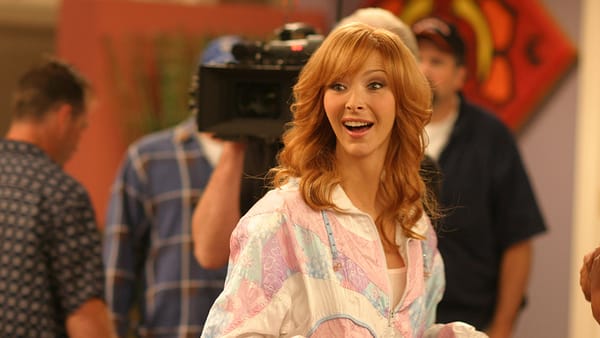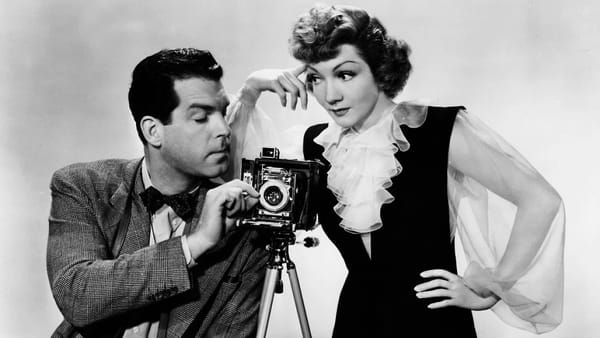On Film Criticism #11: Boundaries

Artwork by Neven Udovičić
Few films that purport to “blur the boundaries between fiction and reality” ever go beyond stating the fact that much of reality is fake or performative, and that, conversely, a lot of what we assume to be entirely artificial is in fact the most true. That cinema captures both the real and the fake simultaneously is undeniably intriguing. But it is hardly a new observation, and Nathan Fielder’s show The Rehearsal almost seems like a cri de coeur about how we are all by now very familiar with the idea.
To wonder how much of the show is a true documentary and how much of it was written is beside the point, and the question is more interesting for the way it brings our attention to an impossible conundrum: the gap between living and rehearsing. Between living, and preparing ourselves for living. Fielder’s proposal is that the more you rehearse a situation, the smaller that gap gets, as you become prepared for more and more possibilities — a mathematically sound, logical idea. But as Christian Craig writes in his essay, it doesn’t account for the fact that during all the time you spend rehearsing, you are also living.
How much time do we spend playing not just any role, but ourselves? Second guessing, trying to figure out or decide who we are? Babak Anvari’s thriller I Came By looks at that same quandary, but within a more political and uncomfortable context. Set in modern-day London, the film centres on characters all troubled by a simple question: are they really trying to improve things, or just doing the minimum necessary to feel better about themselves? Are they making a difference, or are they hypocrites? Are they what they say they are, or are they all talk? Rather than a cynical satire about young “social justice warriors” in the age of social media, I Came By is generous towards its well-intentioned characters and clear-eyed about who the real culprits are. The film’s justice-seeking protagonists “are essentially powerless, but they also cannot afford to wait around for someone with power to change things for them.”
Satyajit Ray’s Devi, in which a young woman becomes prisoner of her father-in-law’s belief that she is the reincarnation of a goddess, likewise initially appears to espouse a simple, manichean dualism, this time between religion and secular thought. But as Anand Sudha writes, “if the film was the mere equivalent of a bloated Richard Dawkins bluster only with a more powerful narrative, then it would hardly be worth revisiting.” What this dualism does is conveniently ignore the young woman herself, her desires, her right to self-determination in this story. It reduces her to a blank canvas for other characters — and viewers — to project their ideas on.
The American movies by Argentine director Hugo Fregonese that were shown in Bologna, Italy, as part of the repertory film festival Il Cinema Ritrovato this past June revealed a director particularly aware of how little control most people have over their lives. Rather than evolve in a world of strong-willed heroes and villains, his characters are thrown from side to side by the winds of chance, the opinions of others, or their own responsibilities to them. Working across several genres — from film noir to the Western, from the comedy to the prison drama — Fregonese flipped the expectations that came with them, better to show that rather than mere oppositions between good and bad, freedom and obligation, each would define and depend on the other. Good and bad are two sides of the same coin.
A boundary, then, is a separation as much as it is a point of contact, and a contour. Alexander Farmer’s essay on digital cinema and its relation to film provocatively posits that digital invented film — that “perhaps cinema, having attained a measure of power over nature with the digital, finds the myth of Total Cinema not so mythical. And so, it desires a new impossible, which it finds in a film stock unaffordable except by the highest budgeted productions.” Opposites attract.



